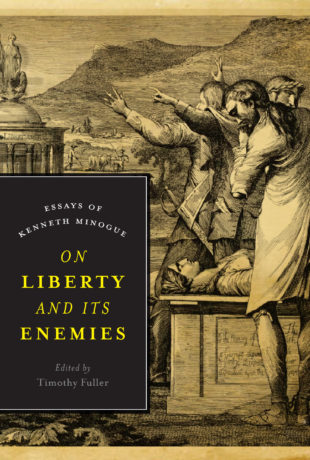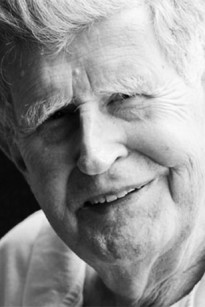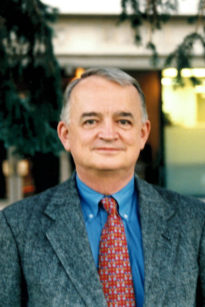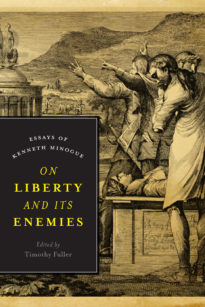Kenneth Robert Minogue was born September 11, 1930, in New Zealand and died June 28, 2013, as he was returning from a meeting of the Mont Pelerin Society in the Galápagos Islands.
His family moved to Australia, where he attended the University of Sydney without completing his degree. He resumed his studies in England, earning a BSc in economics with first-class honors at the London School of Economics (LSE). After a brief period lecturing at Exeter, he was invited by Michael Oakeshott back to LSE, where he taught for forty years until his retirement in 1995. Minogue was a man of multiple talents and a prolific writer. He wrote or edited many books and a vast array of articles and reviews, and he developed a six-part television program in 1986. At his death, he was president of the Mont Pelerin Society. A Euro-skeptic and a leader of the Bruges Group, he was also a trustee of Civitas and active in the Centre for Policy Studies. He was the first president of the Michael Oakeshott Association (2001–2003). He received the Centenary Medal from the Australian government. And as I mentioned, he was a distinguished teacher and scholar at the London School of Economics.
Ken was my friend and colleague for thirty-four years. His colleague and fellow New Zealander Robert Orr introduced us in April 1979. We pretty quickly discovered an intellectual affinity and, when I was an academic visitor in the Department of Government at LSE starting in the fall of 1979, we became devoted friends. I regularly stayed with him on my semiannual trips to London. He visited Colorado College a number of times until heart problems in 2006 precluded his coming to Colorado Springs (at 6,200 feet above sea level), though our meeting at lower altitudes both in the United States and Europe continued. For three years (2003–2005) we co-taught a summer course on British politics, based at LSE, for Colorado College students.
Ken was notably a friend and colleague of Michael Oakeshott at the LSE. A passage in Oakeshott’s on Human conduct describes Ken’s approach to life:
“Hidden in human character, there are two powerful and contrary dispositions, neither strong enough to defeat or to put to flight the other. The one is a disposition to be “self- employed” in which a man recognizes himself and all others in terms of self-determination; that is, in terms of wants rather than slippery satisfactions and of adventures rather than uncertain outcomes. This is a disposition to prefer the road to the inn, ambulatory conversation to deliberation about means for achieving ends, the rules of the road to directions about how to reach a destination, and to recognize that
‘The road runs always to the sea ’Twixt duty and delight.’
. . . The other is a disposition to identify oneself as a partner with others in a common enterprise and as a sharer in a common stock of resources and a common stock of talents with which to exploit it . . . outcomes are preferred to adventures and satisfactions to wants . . . preferring . . . security to the insecurity of seeking to satisfy chosen wants.”
Ken exemplified Oakeshott’s self-employed man who under- stands himself as self-determining and self-regulating, who welcomes adventures rather than depending on outcomes, who prefers the road to the inn and ambulatory conversation to deliberation over means for achieving utilitarian ends; he subscribed to the rules of the road, but his destinations were his own business.






